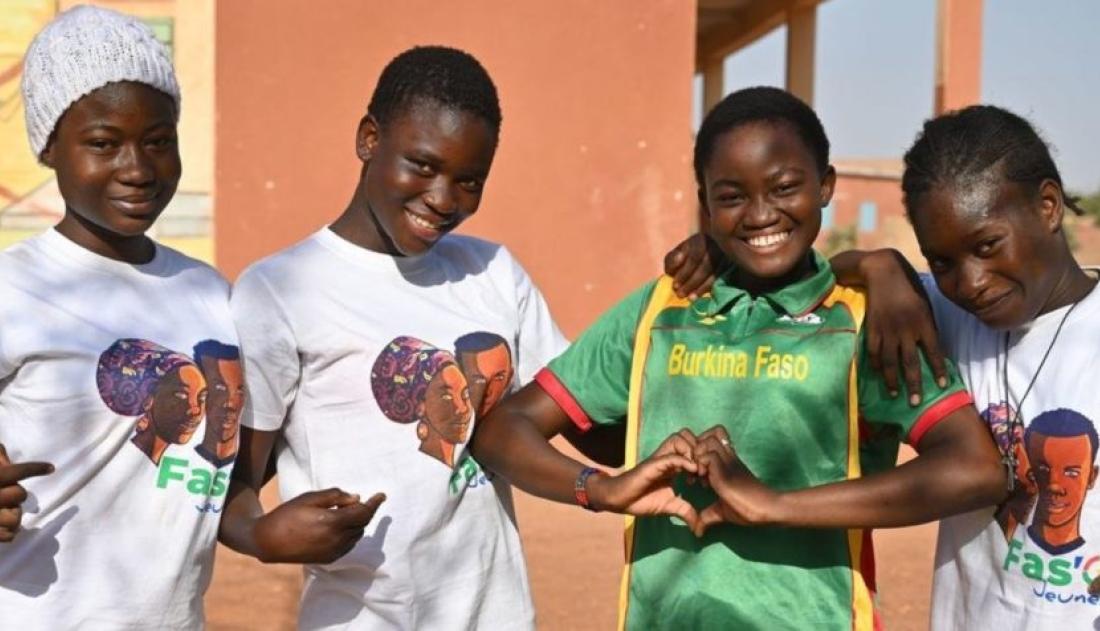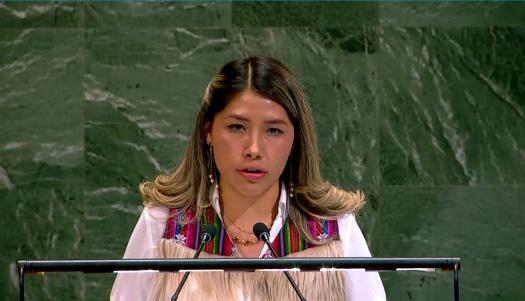
For many decades, the General Assembly has been mindful of the difficulties and opportunities presented by technological change. In 2015, the Addis Ababa Agenda for Action 69/313 and the 2030 Agenda for Sustainable Development established the Technology Facilitation Mechanism to support the Sustainable Development Goals (SDGs). Later resolutions 72/242 and 73/17, specifically address rapid technological change and its impact on the SDGs. Additionally, the World Programme of Action for Youth (WPAY) highlights information communication technologies as a priority area and lists specific action items such as providing training to promote the use of information and communications technology and protecting youth from its detrimental elements.
The spread of information and communications technology and global interconnectedness can accelerate human progress, bridge the digital divide and develop knowledge societies, as does scientific and technological innovation across diverse areas. However, there are also negative consequences, including labour displacement, concerns about privacy and respect for human rights, and the possibility that harnessing technologies to advance towards achieving one of the SDGs could negatively affect other goals and targets.
Numerous problems are exacerbated by the digital divide. The possibility that improvements in digital technology would benefit the already connected while increasing inequality within and across countries must be addressed through effective policies that achieve the shared objective of leaving no one behind. The COVID-19 epidemic has exacerbated pre-existing digital divides and technical inequality.
Inequality, in multiple forms, has been a defining dynamic of the early twenty-first century even before the COVID-19 pandemic, and increased inequality both between and within countries continues to drive instability. This has impacted many vulnerable and marginalized groups, especially young people, who often face multiple dimensions of inequality.
As the world moves towards increased use of digital technologies and Information and Communications Technologies (ICT) infrastructure during the COVID-19 pandemic, and a significant portion of this move could become a normality, inequalities in this sector will accelerate if issues of access and governance are not addressed. However, new innovations in digital technologies and ICT infrastructure, if designed with inclusive policies and processes, offer both an opportunity to create a better future for young people and envision a new social contract.
For youth, drivers of inequality go beyond economic inequality to include inequalities in education, health and public service access, social protection systems, and access to technologies empowered by the internet. According to a 2019 International Labour Organization (ILO) report, “Nearly 4 billion people, including 2 out of 3 children – have no or inadequate social protection to start with, leaving them dangerously exposed to poverty, food insecurity and shocks”.[1] This is an important issue, as a lack of social protection leaves people vulnerable to ill-health, poverty, inequality and social exclusion throughout their lifecycle, creating an obstacle to inclusive social development, and especially impacts the futures of young people.
There are approximately 1.8 billion people alive today between the ages of 10 to 24, with a majority of young people[2] living in urban areas of developing countries. Many young people in these countries bear the brunt of the world’s pre-existing inequalities, which often compound each other, and impede social mobility. These pre-existing inequalities include unequal access to digital technologies and ICT infrastructure. As of 2020, “..93 per cent of the world’s population live within physical reach of mobile broadband or Internet services. However, only 53.6 per cent of the world’s population now use the Internet, leaving an estimated 3.6 billion without access.”
In addition, promoting access by itself does not immediately guarantee a reduction of inequalities. Indeed, the proliferation of digital technologies without inclusive policies and governance can be a driver of inequalities as represented by the rural and urban divide within countries. This can further contribute to low social mobility and uneven development that impacts many vulnerable and excluded groups.
Thus, if evenly distributed and well designed, internet connectivity and new technologies can drive future development; create more inclusive societies by redefining social protection systems; bring new opportunities to young and marginalized people; and enhance the quality of life for those who have access to them. Therefore, a new form of technological transfer and innovation may need to be considered. To drive this change, the United Nations Secretary-General’s Roadmap for Digital Cooperation gives a series of recommendations for international digital cooperation, stressing an inclusive digital economy and society, while utilizing new technologies to accelerate the Sustainable Development Goals (SDGs) and reduce inequalities.
This policy brief will provide an overview of the problem of digital inequality and will introduce the concept of digital public goods as a solution for reducing this. Issues regarding the governance of digital public goods will be discussed, and recommendations will be presented in relation to the creation, adoption and governance of digital public goods (DPGs), and the need for greater stakeholder involvement in these processes, particularly youth engagement.
 Welcome to the United Nations
Welcome to the United Nations


